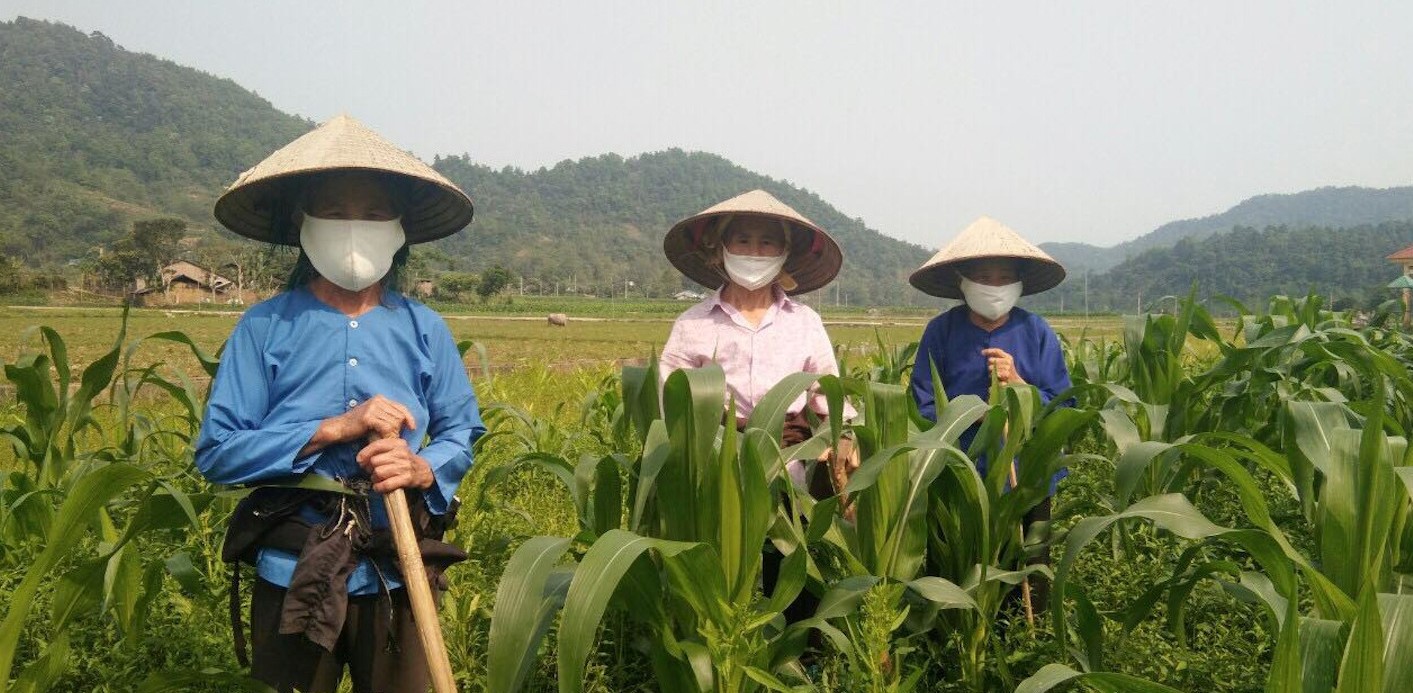An Asia-Pacific crisis like never before
IFAD Asset Request Portlet
Asset Publisher
An Asia-Pacific crisis like never before
By Nigel Brett
After many years of sustained annual reductions in poverty and hunger across the Asia-Pacific region, the COVID-19 global pandemic is threatening a massive reversal of these gains and driving Asian countries into recession. The impact on the region will be severe and unprecedented, and will significantly exceed the impact of both the global financial crisis of 2007–2008 and the Asian financial crisis in the late 1990s.
A recent report from the Asian Development Bank estimates that as many as 68 million people in Asia risk losing their jobs in the coming months. The latest International Monetary Fund projections point to zero GDP growth in 2020, the worst economic performance in Asia in over 60 years. And the United Nations has warned of possible famines unless urgent action is taken.
So far, however, impacts vary tremendously across multiple sectors, with some countries more vulnerable than others, and with developing countries facing the biggest setbacks in our lifetime. Pacific Island states are among the most vulnerable, given their underdeveloped health infrastructure and reliance on tourism. Even within countries, some populations are more vulnerable than others, and it will be the poorest who suffer most. The World Bank has reported that it is likely that 20 million people in the Asia-Pacific region will be pushed into poverty in 2020 as a result of the crisis. The impact will be particularly acute for informal sector workers, the self-employed, day labourers, small farmers and landless workers. Poor households will also suffer from reduced income from remittances. World Bank has projected a decline in remittances of 22 per cent in South Asia and 13 per cent in East Asia and the Pacific.

A response like no other
Faced with an unprecedented crisis, we need a rapid, comprehensive and coordinated response that protects the most vulnerable. All of our efforts need to be aimed at preventing the current health crisis from becoming a food crisis. To ensure food security at the global and regional level, it is imperative that food continues to be traded internationally. Trade restrictions on key staple crops must be avoided at all costs, as trade restrictions will lead to food price increases, which will in turn impact the poorest and most vulnerable. Within countries, it is also crucial to support continued food production and distribution, and ensure that key agricultural services are maintained and flows of food from field to market can continue.
Equally important is targeted support to the hardest-hit poor households, particularly to ensure that distress sales of key household assets don’t become necessary for these families to survive.
Many countries in the region are in fact bolstering food and cash transfer programmes targeted to the most vulnerable. For example, in Pakistan the Ehsaas Emergency Cash Programme is providing income support to 67 million households. In the Philippines, the Government is providing 18 million low income households with financial support. In Indonesia, a food voucher programme is being expanded to 20 million low income households. In India, where a lockdown has impacted 1.3 billion people, the government is adapting the world’s largest safety net system with new measures, including providing cash transfers to 200 million women under the National Mission on Financial Inclusion initiative.
Also critical is emergency support for the millions of microenterprises that employ poor people, as well as ensuring continued access to financial services. Some Asian countries have taken positive steps in this direction. For example, in Bangladesh, the Microcredit Regulatory Authority has deferred loan repayments until June 2020. But much more needs to be done – in particular, we need targeted actions that will build the resilience of the most vulnerable rural producers.
IFAD’s response in the region
IFAD’s response to the crisis has been coordinated closely with Member States and UN agencies, particularly FAO and WFP, our sister agencies in Rome.
IFAD is supporting governments in several ways: at the policy level, particularly in relation to maintaining food security; at the country level, to coordinate analytical work on the impact of COVID-19 with the UN system; at the project level, through repurposing existing development projects; and, more broadly, by rolling out new and targeted initiatives to enhance the resilience of the poorest people in rural areas.
Here are a few examples. The IFAD country team in Bangladesh has advised the government on maintaining the movement of essential inputs and agricultural produce between rural areas and markets. In India, the UN Food and Agriculture Group (IFAD, FAO, WFP) engages daily with the government’s Empowered Committee 5 on logistics and provides real-time data from ongoing projects to inform senior decision makers. This information is contributing directly to decisions that are enabling agriculture and food chains to continue to function.
As for coordinating analytical work, IFAD country teams (including in China, Fiji, Lao People’s Democratic Republic, Philippines, Samoa, Solomon Islands, Tonga, Vanuatu and Viet Nam) are supporting UN Country Teams with the preparation of impact surveys and the establishment of food monitoring protocols. These surveys will be essential for guiding post-crisis recovery and ensuring preparedness for future waves of COVID-19 or other pandemics.
In terms of re-purposing investments, IFAD currently has a programme of approximately US$2.5 billion of loans and grants, financing approximately 60 projects across 20 of the poorest countries in the region. In close consultation with Member States, some of these ongoing projects are now being adapted in real time to respond to the COVID-19 emergency.
In Cambodia, for example, the ASPIRE project is focusing on food commodities with short production cycles. As face-to-face extension is now difficult, technical support is being provided to farmers through online and telephone services. In Bangladesh, the PACE project is setting up a COVID-19–proof delivery system for agricultural inputs and distribution of produce to markets. Also in Bangladesh and in partnership with the World Bank, the NATP project is helping to provide essential agricultural inputs and machinery to vulnerable small farmers.
In India, the OPELIP project in Odisha has been assisting poor farmers with transport of perishable fruits to market. Projects in Mizoram, Nagaland and Uttarakhand are focusing on timely seed distribution in remote hill areas. MAVIM, another project partner in Maharashtra, has introduced micro-ATMs (hand-held devices used to deliver basic banking services) to enable villagers and self-help group members to continue to deposit or withdraw cash. This model is particularly well adapted to the current lockdown situation, as well as for areas where banks are not readily available.
To address disruptions to food imports and distribution, IFAD-funded projects in Samoa and Tonga are expanding their support to rural households to emphasize fresh foods, tubers, livestock and fisheries, which fulfil unmet local demand and increase community self-reliance.
IFAD is not only repurposing existing investments, however. It has just launched a COVID-19 Rural Poor Stimulus Facility, which will enable additional funds to be channelled to support farmers and rural communities. A number of proposals covering the Asia-Pacific region are already being developed for fast-track approval.
COVID-19 has already changed countless lives across the region. For many countries, years of development gains could now be erased. What is clear is that an urgent, coordinated, multilateral response is needed. As noted in the Ministerial Statement of the Extraordinary G20 Agriculture Ministers’ Meeting on 21 April, IFAD is committed to working in partnership with Member States and within the UN system to alleviate the impacts of COVID-19 on food security and to ensure that the most vulnerable rural populations are not forgotten.
See also:
Collaborating in a time of crisis: Three early takeaways from the COVID-19 response in India
Supporting Cambodian farmers during the COVID-19 pandemic
IFAD helps shape Bangladesh’s response to the coronavirus crisis in rural areas
The potential impact of COVID-19 on SDG 2 (food security) – in China and globally
#IFADatwork: our mission in the time of COVID-19
